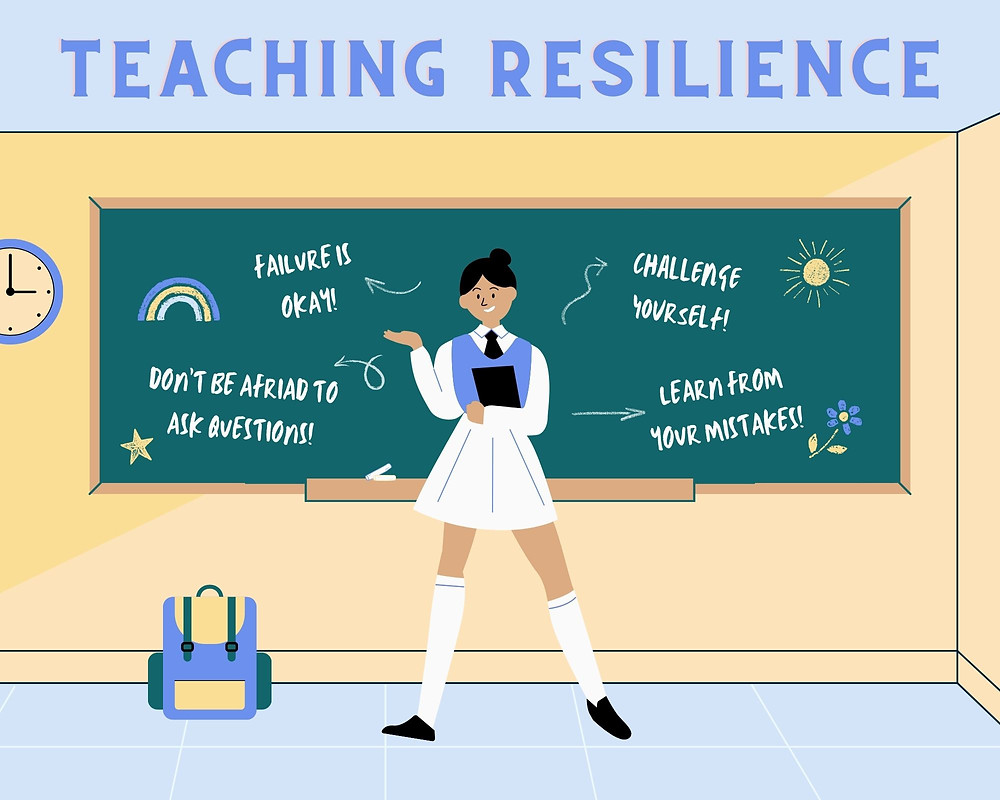
Across the globe, classrooms everywhere have proven to be a safe space to learn new things, from methods and ideologies to facts and general knowledge.
Regardless of language, or education level, the classroom has always proven to be ground zero when it comes to learning important soft skills that follow us through our lives. Be it socially, or as a means and tool to help us in a working environment.
One of the skills that we would like to highlight today is resilience, and how our experiences in the classroom help us to become more resilient individuals.
Experiential Learning Opportunities:
Remember the days when our teachers used to take us out on field trips? Fond memories of piling into the school bus, chattering excitedly with our friends about what exhibits to check out first?
Today, teaching methods have advanced. Field trips are not the only way to have our students have a hands-on day of learning.
As educators, we must incorporate experiential learning activities into the curriculum that require students to navigate challenges, setbacks, and failures.
This could include project-based learning, simulations, or real-world problem-solving exercises where resilience is necessary to overcome obstacles.
For example, during an English lesson, you could get your students to play a ‘MadLibs’ style game, encouraging the class to work together to create an original story by providing one word or sentence each. Set a time limit and let them figure things out.
By challenging students to function outside of rote learning, not only do you enforce the resilience to try new things, but also encourage creative problem-solving.

Promote Growth Mindset:
When we chase progress, sometimes we are fixated too much on the end product, rather than the journey that we experienced along the way.
This is where it would be good to change our perspective and celebrate the journey, regardless of the outcome.
In a landscape as competitive as Singapore, embracing a mindset like this called a growth mindset, can be quite challenging.
To help your students adopt a growth mindset, here are some ways in which you can help them.
- Emphasise that intelligence and abilities can be developed through dedication and hard work
- Encourage them to view challenges as opportunities for growth
- Don’t just focus on the outcome, praise the things learnt along the way
- Praise students who do not give up, even when they fail
When a safe space is created in the classroom, one that normalises failure, students are encouraged to make mistakes, as opposed to being fearful to try new things.
This kind of mindset encourages students to be risk-takers and not develop a negative setback mindset towards failure.
Provide Supportive Feedback:
In order to create a classroom that fosters a safe space for learning, you can offer feedback that encourages your students to grow and improve, rather than simply negative feedback that is harmful to their self-esteem.
Offer constructive feedback that focuses on effort, improvement, and resilience rather than solely on outcomes.
The most important thing is to structure your feedback in a way that allows your students to make changes and improve.
This allows them to see learning as a process to growth, and not just a means to an end.
When they do well, encourage them! After all, wouldn’t you like to hear that you are doing a good job too?
Teach Coping Strategies:
Besides learning general knowledge and keeping up with the syllabus, you can have an impact on your students by teaching them life skills.
One of the skills that help students deal with failure is through effective coping strategies.
While failure is inevitable, no matter how gifted of a student you are, it is equally as important to learn how to deal with failure when it comes around.
You can highlight to your students, that even though they failed at this one thing, the failure does not define them! Failure can be a hard pill to swallow, but what is important is that you pick yourself up, and keep trying your best.
To help your students, you can introduce techniques like
- coping strategies
- stress management techniques
- mindfulness exercises
- goal-setting techniques
- time-management skills
These tips and tricks can help them both in and out of the classroom for years to come.

Foster a Supportive Learning Environment:
Ultimately, the best way to encourage a positive attitude about making mistakes is if the environment is safe and supportive enough.
Create a supportive classroom environment where students feel safe to take risks, make mistakes, and ask for help when needed.
Encourage collaboration, empathy, and a sense of community among students, fostering resilience through peer support and positive relationships with teachers and classmates.
Another part of this support system can be the external help that your student needs if they are struggling academically. If that is the case, you can even ask them to search for a tutor.
There is no better place to engage in private tutor services than here at Smiletutor!
In conclusion, fostering resilience in students is paramount in preparing them to navigate life’s challenges with confidence and adaptability. By cultivating a resilient mindset, students can develop the ability to bounce back from setbacks, manage stress effectively, and maintain a positive outlook even in the face of adversity.
